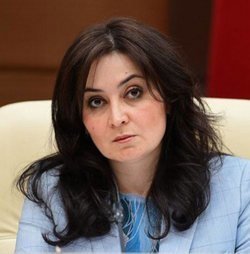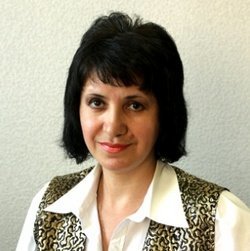COVID-19 hospitalisation rate falls 10 times, but masks aren’t cancelled in Tatarstan
This week Russia’s consumer rights protection watchdog has changed or completely cancelled a number of restrictions because of the specifics of the new omicron variant. Tatarstan Vice Premier Leyla Fazleyeva and head of the Department of Epidemiological Supervision of the Tatarstan office of the watchdog Liliya Yuzlibayeva talked about this in detail on 9 February. The restrictions are eased amid a sudden fall in the number of hospitalised people — 10 times compared to the period of the delta spread. But first things first.
What restrictions the watchdog eased because of omicron
Liliya Yuzlibayeva defined two key novelties. Firstly, since Monday, patients who have recovered from coronavirus and were in hospitals for 7 days and longer are discharged without a laboratory test for COVID-19. Secondly, everybody who contacted infected people don’t have to be isolated. Also, Tatarstan residents — those who were vaccinated or recovered from coronavirus in the last six months — who return from abroad don’t have to stay in quarantine and even do a PCR test, it is enough to show a QR on the website of State Services.
Those who didn’t fall ill or weren’t vaccinated — perhaps, all tourists have been vaccinated because of the restricted access in almost all foreign countries — still have to do a PCR test within four days. They must stay in quarantine before obtaining its result.
Finally, it is not mandatory to do a PCR test after a doctor does an express test that turned out to be positive. The case is considered confirmed “by any diagnostic method.”
10 times fewer patients are hospitalised today, up to 70% ended up in hospital bed just six months ago

Liliya Yuzlibayeva noted that first of all the fact that the incubation period of the omicron variant is much shorter, just three days, not 14 like in the previous variants, influenced the decision to ease the restrictions made by the Russian consumer rights protection watchdog. Secondly, the disease itself goes away faster. Thirdly, patients as a rule don’t need hospitalisation.
“If during the spread of the delta variant, up to 70% of Tatarstan citizens were hospitalised, now no more than 7% of patients are hospitalised,” said Yuzlibayeva.
Moreover, even the 7%, in fact, is a bit high because mainly children get infected and have mild COVID-19. Parents who leave them in the hospital do this just in case. Also, children have the flu whose season overlapped with the new wave of the coronavirus pandemic “is a bit different from that of adults.” Anyway, Leyla Fazleyeva advised to take care of not only children’s health but also the elderly, people over 60 years, pregnant women and those who have “a lot of diseases.” These categoriesy continue needing hospitalisation. In addition, the most dangerous variant of coronavirus delta isn’t gone, she claimed citing Russian doctors in regional and data of the federal watchdog.
Schools and kindergartens to be put in quarantine in case 20% of children are ill
The same measures taken to prevent the spread of coronavirus stay:
“Though the omicron causes a mild case, but the disease exists. Also, it spreads faster than the alpha and delta. Masks are still mandatory, vaccination still simplifies the development of the disease. Also, we recommend avoiding crowded people,” claimed head of the Department of Epidemiological Supervision of the Tatarstan office of the watchdog Liliya Yuzlibayeva.
Even though schools and kindergartens are “crowded places,” now they are not put in quarantine because, Leyla Fazleyeva noted, “filters” work successfully there. Their presence and strict use is controlled by daily inspections of representatives of the task force, the Tatarstan office of Russia’s consumer rights protection watchdog.
“During the work of the task force with educational institutions, the experience showed that filters where thermometry is followed, the institutions function without fail and closure there,” she explained.
Moreover, nowadays schools and kindergarten directors can themselves decide if to transfer groups or classes to remote learning. However, 20% and more children with the flu or acute respiratory infections is the foundation for such education.
“Because the omicron develops like acute respiratory infections. There is no need to transfer children into remote learning if one kid is ill. All institutions work as usual, like before. Filters are an effective method, it works well,” Yuzlibayeva agreed.
Tatarstan parents split into those who support remote learning and those who are against
Nowadays according to Leyla Fazleyeva only three schools are closed in Tatarstan where over 20% of students have acute viral respiratory infections (or omicron). The management of these schools made a decision on the quarantine. Teachers who had been infected earlier start to go back to work, she named this “good news for everybody working in the education system.” Also she said that at the moment there was disagreement between children’s parents. One category doesn’t want their children to study remotely (seemingly, they are concerned about the quality of education or are afraid of leaving their child at home). The other category is, in contrast, in favour of online education (caring about the child’s health more).
“There isn’t a single opinion. But anyway most parents say about the necessity of using filters. If the number of infections exceeds 20%, then the class stays home for seven days,” the Tatarstan vice premier explained.
Events in kindergartens aren’t banned today if they are held in the group, parents are “conscious” (were vaccinated and wear masks) and their number at these events is anyway limited. Parents’ complaints about the “formality of filters” in some kindergartens are processed by the task force immediately. Liliya Yuzlibayeva noted that such sanitary rules related to educational institutions aren’t an invention of our pandemic days, they “have always been and will be”:

Masks in public transport won’t be cancelled, moreover, during the flu season
According to Leyla Fazleyeva, a lot of parents ask to save such practice in the future when coronavirus starts to decrease and unpopular restrictions are cancelled.
Masks are especially unpopular today, it is mandatory in public transport. Sadly, it won’t be cancelled yet.
“While we still have the flu season, I think it is early,” claimed Liliya Yuzlibayeva. “Masks work. Moreover, masks are necessary because of the specifics of omicron, its fast spread. There is close contact in public transport, windows aren’t opened in winter.”
Whereas Leyla Fazleyeva expressed her confidence that those “who are careful about their and their relatives’ health” will follow the mask regime even after the period of acute viral respiratory infections is over, “even after all restrictions are lifted.”
2,4 million people have been vaccinated in Tatarstan, but vaccination rates are low
Despite a lot of changes made because of the spread of the omicron variant, Tatarstan continues being in a good state from a perspective of the number of vaccinated people, concluded Fazleyeva: nowadays 2,4 million people have been vaccinated, the daily growth is 4,100 today. Nevertheless, the Tatarstan task force isn’t happy with the revaccination rate. Just 209,000 Tatarstan residents have been revaccinated at the moment.
“Perhaps, the rates must be higher, given the rates [of vaccination] we had six months ago,” the speaker noted and added that due to the spread of the omicron strain the population anyway reacted with a bigger desire of revaccination. “Regions are still recommended not to lift the restrictions. And masks in public transport will stay for some time.”
To sum up the key changes in sanitary rules related to the restriction of the spread of coronavirus, they are the following:
- The new rules apply only to those who were diagnosed with coronavirus at 6 February. If you fell ill earlier, the isolation period will still be 14 days.
- If you are on sick leave, a doctor must call you. The doctor will decide if your leave is over or not..
- There is no need to go to the hospital to go back to work:: paper leaves haven’t been used since 1 January 2022. All the information goes to your employer.
- People who contacted infected individuals weren’t be put in quarantine. Due to the specifics of the omicron variant, “these restrictions lose their meaning,” the Tatarstan task force notes. Quarantine is cancelled for those who were self-isolated before 5 February.
- If you were on sick leave because of COVID-19 for more than a week, you will be released without a negative PCR test.